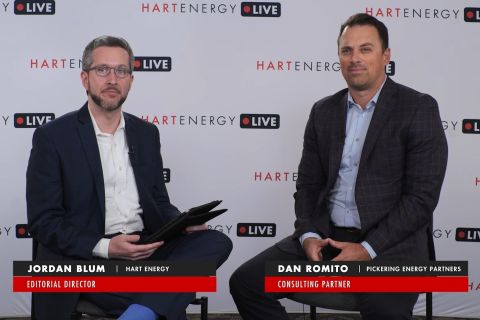
Regulatory action alone will not bring the change needed to avoid the worse effects of global warming but eliminating fugitive methane emissions—especially from oil and gas operations—can buy more time to develop additional low-carbon and net-zero solutions, Romer writes. (Source: Shutterstock.com)
[Editor’s note: Opinions expressed by the author are their own.]
From accelerating glacier melts in Alaska to wildfires in Arizona and New Mexico, the effects of climate change are touching every state across the country. While the impacts of global warming are becoming increasingly obvious, we have the technology, means and ability to take action on a primary warming culprit: methane.

It’s not as well-known as CO₂ and not as virtue-signaling friendly as metal straws, but it is the best step we can take. Right now. Eliminating fugitive methane emissions—especially from oil and gas operations—can buy us more time to develop additional low-carbon and net-zero solutions.
We have to act. Now. The urgency is only increasing. Regulation will not be the salve we were hoping for as the Supreme Court’s decision significantly limits the EPA’s powers to tackle one of the most pressing issues of our lifetime.
We must now look to markets and consumers to solve this problem.
Solving the climate conundrum will require tackling short-lived climate pollutants (SLCPs), which includes methane, a molecule that’s over 80 times more potent than CO₂.
The scientific consensus around methane is there. A recent scientific paper from the Washington-based Institute for Governance and Sustainable Development (IGSD) warned that if we want to have a fighting chance of meeting the Paris Agreement and avoid the worst consequences of climate change then gases such as methane must be cut sharply.
With the problem identified, the good news is the solution is known, accessible and deployable in a manner that won’t disrupt energy markets, affordability and reliability. Some heavy-emitting sectors such as the oil and gas industry are now more prepared than ever before to cut methane significantly.
The oil and gas sector is responsible for 82MT, or about 15% of global methane emissions. But thanks to technological advancements we now have the tools to drastically curb methane leaks. For instance, we now can deploy continuous pad monitoring on oil wells that sample the air every second and can detect methane releases down to the part per billion. With this information in real-time companies can ensure that wells remain properly plugged and that no methane leaks.
With the technologies now in place to monitor and reduce methane leaks, third-party certification processes have been developed to validate the green credentials of producers and ensure that the highest environmental standards are met to produce responsibly sourced gas (RSG).
This year we have witnessed a record volume of RSG hit the U.S. markets. But we are also seeing an increasing number of utilities—including Europe—purchasing U.S. certified RSG as the green market-based solution to the gas supply crunch that is in tune with their energy transition goals.
Even with a strong EPA, regulatory action alone would not have brought the change needed to avoid the worse effects of global warming. Market-driven action, combined with regulatory approaches, can bring about the change needed. “We the People” need to act. The tools we need to slash methane and bend the arc of climate change are readily available. We need those with the power and capital to make a difference to step up.
Recommended Reading
Hirs: LNG Plan is a Global Fail
2024-03-13 - Only by expanding U.S. LNG output can we provide the certainty that customers require to build new gas power plants, says Ed Hirs.
Report: White House to Slow Approval on Calcasieu Pass LNG Terminal
2024-01-24 - Administration officials say the effect on climate change will be added to considerations.
Exclusive: Dan Romito Urges Methane Mitigation Game Plan
2024-04-08 - Dan Romito, the consulting partner at Pickering Energy Partners, says evading mitigation responsibility is "naive" as methane detection technology and regulation are focusing on oil and gas companies, in this Hart Energy Exclusive interview.
From Satellites to Regulators, Everyone is Snooping on Oil, Gas
2024-04-10 - From methane taxes to an environmental group’s satellite trained on oil and gas emissions, producers face intense scrutiny, even if the watchers aren’t necessarily interested in solving the problem.
Markman: Is MethaneSAT Watching You? Yes.
2024-04-05 - EDF’s MethaneSAT is the first satellite devoted exclusively to methane and it is targeting the oil and gas space.





